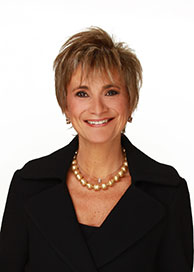|
|
|||
|
|||
|
|||
|
|
||
|
Trust people, value them and let them know you doNot yet 50, Sonny Garg has had a remarkably successful career. With degrees from the University of Chicago and Harvard, he began as a researcher at the Chapin Hall Center for Children and then moved on to stints in government as an assistant to Chicago Mayor Richard M. Daley and a White House fellow in the Clinton administration. In recognition of his leadership capabilities, he was named a Henry Crown Fellow at the Aspen Institute. In 2002 he began a 13-year career with energy giant Exelon, where he served most recently as Chief Information and Innovation Officer. In 2015, the Executives Club of Chicago and industry groups named him CIO of the Year. In August Sonny joined Uptake, a new Chicago-based data analytics company headed by Brad Keywell, the entrepreneur behind Groupon and other businesses. Last month Uptake announced it had raised $45 million from GreatPoint Ventures and other investors, bringing its valuation to more than $1 billion, a rare feat for a Midwest firm. Sonny is leading Uptakes entry into the energy industry. The Center for High Performance worked with Sonny for several years at Exelon to help create and sustain a high-performance environment, set strategic direction and achieve corporate objectives. During a time that the parent company was going through massive change, including layoffs and a merger, the members of Sonnys IT team assessed their organization annually using the CfHP High-Performance Quotient an instrument that examines 15 performance attributes by rating them on a 10-point scale. From 2012 to 2014, the IT teams overall rating increased significantly, from 6.5 to 7.1, meeting the global benchmark for a high-performance work environment. CfHP talked to Sonny about the leadership lessons he brings to his new role. Q: Why did you make the move from a large legacy company to a data analytics start-up?  A: When I was talking to Exelon CEO Chris Crane about leaving the company, I told him this wasnt about Exelon. I simply wanted to do something different. I wanted to be in a space that was being completely disrupted. So much of what you do in a mature industry is refine your model; its very incremental. I wanted to be somewhere trying to think innovatively and make step changes, not just incremental changes. When it comes to big data, what happened in the consumer space is now happening in the industrial space companies are trying to monetize data in a meaningful way. Theres a wide open opportunity to go do that. Q: How is it going so far? A: Its a lot of fun. At Uptake, Im part of a team thats defining what the company could be and how it could add value in the marketplace. I like the informal nature. Theres no hierarchy were all together in an open space, and to me thats really important. Ive gotten tired of the standard hierarchical model in which executives are viewed as more deserving than others. I like the flatness of the Uptake organization and I like the idea of being able to build a new culture. Q: Can you transfer what you learned at Exelon to a much smaller, high-tech company? A: There are obviously differences between a big company and a start-up. One is that at a big company youre trying to change something that already exists. There are lots of existing behaviors and relationships, and assumptions with regard to how people are treated and rewarded. At Exelon I needed to understand their experiences in the past to build a shared vision for the future. At Uptake we dont have that cultural history. We can build the vision and the culture from scratch. Here people are excited and feel valued; there isnt as much skepticism and cynicism. Q: How do you see your role in helping the company succeed? A: Its a leaders job to create an environment that allows people to understand how they fit into the broader vision and to feel a sense of purpose. Im working with my energy team to define a vision together. As we do our work, its important to revisit the broader purpose frequently and not just focus on today. Every organization is an assembly line, to a certain degree. Individuals need to understand that what they do is important to the ultimate product, and you cant assume they will remember that every day. So you have to take opportunities to look at the bigger picture. I dont know if theres one right way of doing this, but I do know you have to be intentional about it. You cant assume its going to happen. Q: Would you motivate people differently in a start-up than in an established company? A: I dont think its different. There are differences in how people are compensated but the more intrinsic things are the same. Im a firm believer that if people feel theyre being valued, if they have influence over what they do and how they do it, that is motivating regardless of the companys size. You have to trust the employees, they have to know you trust them, and they have to feel theyre adding value to the whole puzzle. |
||
|
|
||
|
|||






